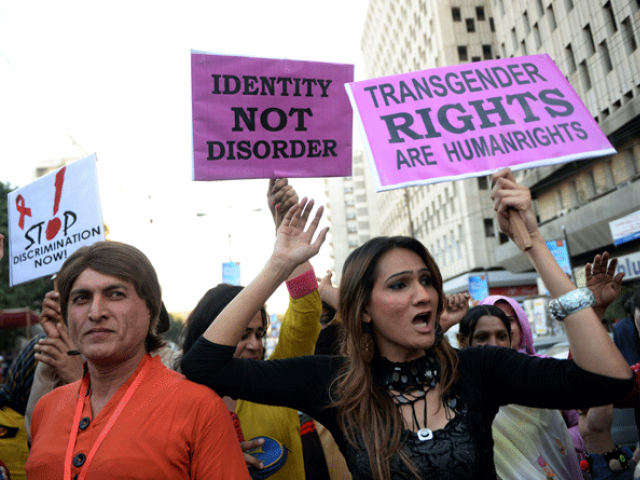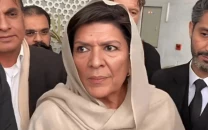Transgender law provisions defy Shariah: CII
Council fears the 2018 Act may lead to ‘new social problems'

The Council of Islamic Ideology (CII) on Tuesday maintained that several provisions in the Transgender Persons (Protection of Rights) Act 2018 were inconsistent with Shariah.
In a communique, the CII feared that the law might lead to “new social problems”.
The council stressed the need for protecting the rights of the actual intersex people – generally meaning a person with ambiguous genitalia and also known as hermaphrodite.
The council asked the government to form a committee to review the legislation on the transgender community.
It added that Islamic clerics and scholars as well as legal and medical experts should be included in this body.
The council stressed the need for reviewing all aspect of this matter so that there could be an effective law on the issue.
The CII also appreciated the amendments to the National Accountability Ordinance (NAO).
It urged the government to incorporate the recommendations made by the CII in the law.
A day earlier, Senate Chairman Sadiq Sanjrani said the committee formed to consider the recently submitted amendments to the Transgender Persons (Protection of Rights) Act would duly consult religious scholars and the CII if required.
The 2018 Act for transgender persons defined their gender identity and prohibited discrimination against them.
The law ensured issuing of certificate of identity to transgender persons and provided that no establishment shall discriminate against them in matters relating to employment, recruitment, promotion and other related issues.
It also provided for grievance redressal mechanism for the community in each establishment.
The act defined “transgender person” as a person who was (i) intersex (khusra) with a mixture of male and female genital features or congenital ambiguities: or (ii) a eunuch assigned male at birth, but underwent genital excision or castration; or (iii) a transgender man, transgender woman, khawaja sira or any person whose gender identity or gender expression differed from the social norms and cultural expectations based on the sex they were assigned at the time of their birth.
The section 3(1) – Recognition of identity of transgender person – stated that a transgender person shall have the right to be recognised as per his or her “self-perceived” gender identity, as such, in accordance with the provisions of this act.
Section 3(2) also read that a person recognised as transgender under sub-section (l) shall have the right to have himself or herself registered as per “self-perceived gender” identity with all government departments including, but not limited to, the National Database and Registration Authority (NADRA).
The sub-clause 3 stated that every transgender person, being a citizen of Pakistan, who had attained the age of 18 years, shall have the right to let himself or herself registered according to self-perceived gender identity with NADRA on Computerised National Identity Cards (CNICs), Child Registration Certificate (CRC), driving license and passport in accordance with the provisions of the NADRA Ordinance, 2000 or any other relevant laws.
The fourth clause of the section stated that a transgender person to whom a CNIC had already been issued by NADRA shall be allowed to change the name and gender according to his or her self-perceived identity on the card, CRC, driving licence and passport in accordance with the provisions of the NADRA Ordinance, 2000.
The chapter on prohibition of certain acts read that no person shall discriminate against a transgender person at educational institutes; deny or give unfair treatment in relation to employment, trade or occupation, and deny healthcare facilities.
The use of public facilities of transportation and accommodation could not be denied under the law.
It also ensured the right to movement, sale, purchase, rent or inherit moveable or immovable property; provided the opportunity to stand for public or private office and prohibited harassment based on their sex, gender identity and gender expression.
The act made it obligatory on the government to establish centres and safe houses to ensure rescue, protection and rehabilitation of transgender persons in addition to providing medical facilities, psychological care, counselling and adult education to transgender persons.
It also stated that the government should establish separate prisons, jails and confinement cells for transgender persons involved in any kind of offences, formulate special vocational training programmes, encourage them to start small business by providing incentives, loans and grants.
Under the law, transgender persons had the right to inherit, education, employment, vote, hold public office, health, assembly, property; access to public places; and guarantee of fundamental rights.



















COMMENTS
Comments are moderated and generally will be posted if they are on-topic and not abusive.
For more information, please see our Comments FAQ